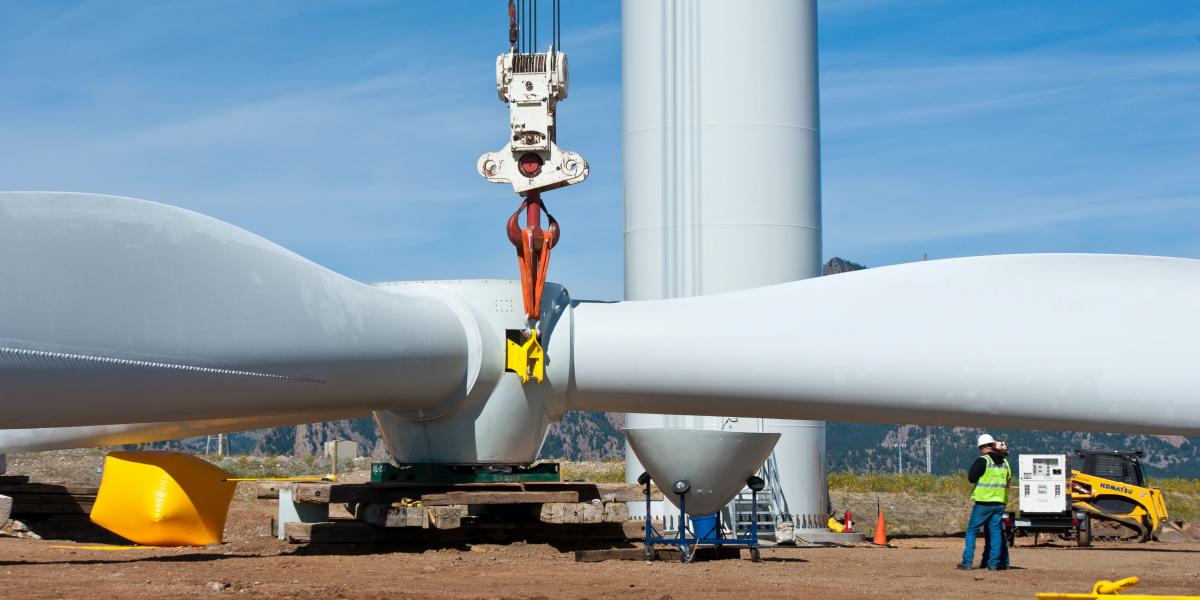
January 21, 2021
Guest post by Katarina Savic and Christina Hoicka
Canada, along with the rest of the world, is experiencing multiple challenges that require urgent attention, including reconciliation with Indigenous Peoples, climate change, and the economic disruption caused by the COVID-19 pandemic. The low-carbon energy transition calls for greater generation and consumption of renewable energy. The post-COVID economic recovery offers an opportunity to focus on rebuilding our economy in more inclusive ways to uplift communities that have been historically marginalized from economic benefits. Greater Indigenous ownership and control of renewable energy projects is one way to address the economic and climate crises in the post-COVID green economic recovery while also contributing to reconciliation and self-determination.
Indigenous economic development corporations (EDCs) are a community-based business structure emerging across Canada.i In order to better understand how renewable energy projects of grid-connected First Nations can address reconciliation and self-determination, our study - a partnership between the social exergy + energy lab at York University and the Canadian Council for Aboriginal Business - examined renewable energy and EDCs across Canada. We identified 157 grid-connected renewable energy projects with Indigenous community involvement and conducted surveys and interviews with First Nation’s EDCs involved in these projects. We summarize a few key findings from these surveys and interviews below.
We learned that First Nation participation and ownership in renewable energy projects contribute to economic reconciliation and self-determination because it asserts their rights and title to their land and builds partnerships with industry and government, while generating own-source revenue.
We found that the most prevalent motivation to pursue renewable energy projects was to generate own-source revenue which improves a community’s ability to govern and provide for themselves. One participant told us that Indigenous ownership in renewable energy is part of “economic reconciliation” (defined by the Truth and Reconciliation Commission as “working in partnership with Indigenous people to ensure that lands and resources within their traditional territories are developed in culturally respectful ways that fully recognize Treaty and Aboriginal rights and title”ii) and about meaningful collaboration and mutual prosperity between Indigenous businesses, private sector and governmentiii.
Our research suggests that First Nation participation and ownership in renewable energy projects creates a sense of restored ownership and control over their lives and land. Ownership in renewable energy projects not only brings financial benefits, but also an affirmed sense of pride to be recognized as the rightsholders and custodians of the land. Additionally, having equity ownership in renewable energy projects is more lucrative and sustainable than an impact and benefit agreement because the benefits of such an agreement are short, temporary, and rarely offer decision making authority in the project. Because EDCs serve communities, involvement in renewable energy projects also builds capacity amongst individual community members by providing jobs, skill development and training, and among EDC leadership through increased partnerships and business development.
Our results indicate that legislation and policy need to address systemic and attitudinal barriers that still exist for First Nation EDCs. Survey and interview participants indicated that many First Nation communities and their EDCs are not treated with respect during consultation and negotiations with non-Indigenous stakeholders and expressed that First Nations need to be included respectfully in the discussions and planning of all energy and development plans from the very beginning. It was expressed that the Indian Act legislation is a continued barrier for First Nations and their businesses to accessing capital from mainstream banks, impeding the potential for economic development. Supportive policies and legislation such as Ontario’s Feed-In-Tariff Aboriginal Price Adder and British Columbia’s Clean Energy Act encouraged greater Indigenous ownership and partnerships in renewable energy projects and contributed to leveling out the playing field for First Nations companies that experience greater barriers compared to their non-Indigenous counterparts. Some participants explained that partnerships and joint ventures between EDCs and industry or government are ideal governance structures because of the high potential for return on investment, and job and wealth creation. Specifically, 50-50 partnerships honour the spirit of reconciliation and meaningful collaboration between two nations.
Finally, we found that honouring the true intent of the treaties is imperative for reconciliation from both personal and business perspectives because it re-distributes the land and resources back to the First Nations. Land is sacred to First Nations beliefs, cultures, and practices, and having greater control over their land is integral to reconciliation and self-determination.
Moving forward, our research findings suggest that provincial, territorial, and federal governments should enhance the policies and programs that have encouraged Indigenous equity ownership and control of renewable energy projects on their traditional territories. Greater Indigenous ownership and control of renewable energy projects is one way to address the economic and climate crises in the post-COVID green economic recovery while contributing to reconciliation and self-determination.
This project, titled “Post COVID-19 Indigenous Economic Recovery: Reconciliation in the Energy Transition” was funded through Smart Prosperity Institute’s 2020 Special Call for Proposals: Climate and Environmental Policy in the context of COVID-19. Further details of this and other funded projects are available here. To read the full study, see this newly published Smart Prosperity Institute Working Paper.
i Canadian Council for Aboriginal Business, "Community and Commerce: A Survey of Aboriginal Economic Development Corporations in Ontario," Canadian Council for Aboriginal Business, Toronto, 2015.
ii Truth and Reconciliation Commission of Canada, "Honouring the Truth, Reconciling the Future," Truth and Reconciliation Commission of Canada, Ottawa, 2015.
iii Canadian Council for Aboriginal Business, "Business Reconciliation in Canada Guidebook," Canadian Council for Aboriginal Business, Toronto, 2019.